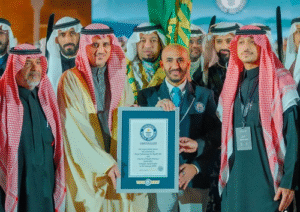Dr. Zakir Husain (1897–1969) holds the distinction of being the first Muslim President of the Republic of India, serving from 1967 until his death in 1969. His presidency was a significant milestone in the history of independent India, symbolizing both the unity and secularism of the country.
Birth and Family: Dr. Zakir Husain was born on February 8, 1897, in Hyderabad, India, into a well-educated family with a strong emphasis on intellectual and social reform. His father, Fakhruddin, was a prominent scholar, and his family had a tradition of academic excellence and service to society.
Education: Dr. Husain was a brilliant student from a young age. He attended Aligarh Muslim University (AMU), where he was deeply influenced by the progressive and modern ideals of the time. He later moved to Germany to study at the University of Berlin, where he earned his Ph.D. in economics and gained exposure to Western educational models.
Jamia Millia Islamia: Dr. Zakir Husain was one of the founding members of Jamia Millia Islamia University in New Delhi (founded in 1920). The university was initially established in Aligarh but later moved to Delhi. Dr. Husain’s leadership and vision helped shape Jamia Millia into a respected institution of higher learning in India, with a focus on secular education and national integration. He served as its Vice Chancellor and worked to make it a beacon of progressive education, particularly for marginalized communities.
Social Reforms: Dr. Husain was an advocate for social equality, and he championed causes such as women’s rights, social justice, and economic development. His belief in a society where people of all communities could live in harmony was reflected in his work both as an educator and as a public figure.
Active in the Freedom Movement: Although Dr. Husain was not one of the frontline leaders of the Indian freedom struggle, he was deeply committed to the ideals of nationalism and Indian independence. He was involved in various social and political initiatives aimed at uniting Hindus and Muslims in the fight for India’s independence. His work was often guided by the belief in unity and secularism, a vision that was at odds with the communal tensions of the time.
Vice President of India: In 1962, Dr. Zakir Husain was elected as the Vice President of India, serving under President Dr. Sarvepalli Radhakrishnan. His tenure as Vice President was marked by his commitment to the ideals of a democratic and secular India, with an emphasis on education and social reform.
Election as President: Dr. Zakir Husain was elected as the third President of India on May 13, 1967, after the death of Dr. Sarvepalli Radhakrishnan. His election was a historic event, as he became the first Muslim President of India, a testament to the inclusive and secular nature of the Indian Republic.
Symbol of Secularism and Unity: Dr. Husain’s election was a significant moment for the Muslim community in India, as it represented the possibility of achieving the highest office in the country despite religious identity. His presidency symbolized the unity of India’s diverse communities, reinforcing the country’s commitment to secularism and pluralism as enshrined in the Constitution.
Secular and Inclusive Leadership: As President, Dr. Husain worked to strengthen the secular fabric of Indian democracy. He emphasized national unity and worked to maintain a balance between the interests of different communities in India. His leadership was also reflective of his long-held belief that India’s strength lies in its diversity.
Commitment to Education: Dr. Husain was deeply committed to the promotion of education, both as a tool for social empowerment and as a means to foster national unity. His contributions to the educational sector, especially his involvement in Jamia Millia Islamia, continued to influence his decisions during his presidency. He supported policies aimed at expanding access to education, particularly for disadvantaged communities.
The Role of the President: As President, Dr. Husain’s role was largely ceremonial, as executive powers were vested in the Prime Minister and the Cabinet. However, Dr. Husain was widely respected for his moral authority, wisdom, and integrity in the way he conducted his duties. His presidency was marked by his efforts to maintain the dignity of the office and uphold the Constitutional principles of the Indian Republic.
Death: Dr. Zakir Husain’s presidency was tragically cut short by his sudden death on May 3, 1969, less than two years into his term. He became the first Indian President to die in office. His passing was deeply mourned across India, and it marked the end of an era of leadership that was both intellectually profound and morally principled.
Posthumous Recognition: Following his death, Dr. Husain was posthumously awarded the Bharat Ratna (India’s highest civilian award) in 1971 in recognition of his contributions to the nation and his role as an educator, reformer, and leader.
Symbol of Secularism and Unity: Dr. Zakir Husain’s legacy as the first Muslim President of India is one of national unity and secularism. His presidency reinforced the ideals of an inclusive India, where all communities, regardless of religion, could hold positions of power and influence. He became an important symbol of the country’s commitment to democratic values and the vision of a pluralistic society.
Role in Education: His work in education, especially through Jamia Millia Islamia, continues to inspire generations of students and educators. He believed that education was the key to empowering individuals and building a more just society. His contributions to Indian academia remain enduring, and his efforts to create a space for modern, secular education have had a lasting impact.
Legacy in Indian Politics: Dr. Husain’s presidency also left a lasting impact on Indian politics, as he embodied the values of civic responsibility, democratic integrity, and social justice. His leadership continues to serve as an example for future generations of leaders committed to serving the nation with dignity and honor.
Dr. Zakir Husain was the first Muslim President of India, serving from 1967 to 1969. His election to the highest office in the country was a testament to the secular and inclusive ideals of the Indian Republic. As a visionary educator, social reformer, and political leader, he played a key role in shaping the modern Indian state, with a strong emphasis on unity, national integration, and education. His untimely death in office marked the end of an important chapter in Indian politics, but his legacy as a symbol of secularism and progressive leadership continues to inspire.







